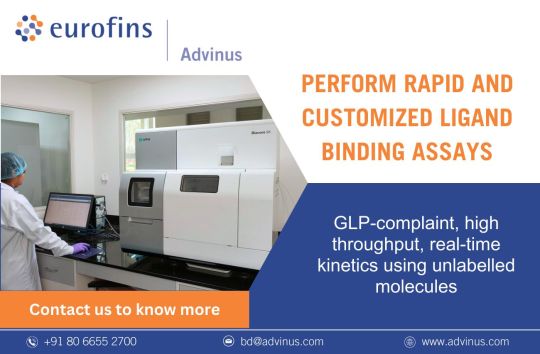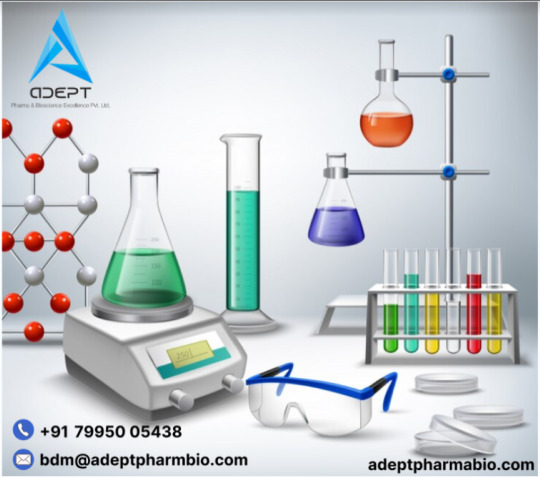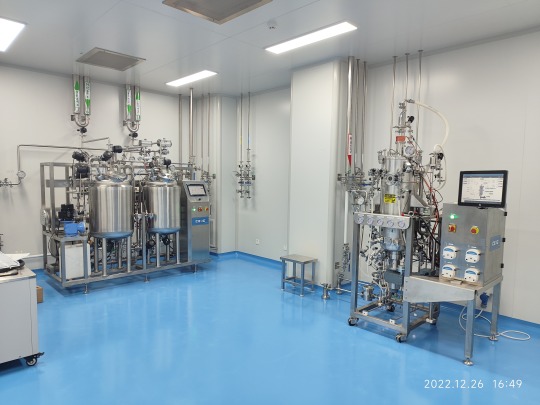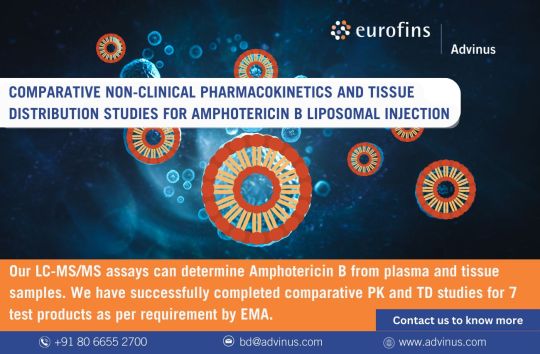#drugdevelopment
Link
The primary objective of modern proteomics studies is to analyze and isolate the proteome of individual cells from a pool of similar cells. Existing techniques like RNA sequencing, microarrays, quantitative PCR, and reverse transcription-PCR (qRT-PCR) are designed to analyze RNA in a population of cells in general. These techniques fail to quantify phenotypically different individual cells called “rare cells.” scRNA-seq can analyze RNA expression in a single cell and has been used by pharmaceutical companies in designing new drugs.
The existence of phenotypically different, divergent cells in a population of cells is a common occurrence. These variant cell types are termed rare cell types. Next-generation sequencing (NGS) has helped identify and analyze these individual cells. Existing genomic analysis techniques assume tissue to be homogeneous in nature. NGS-based studies proved the heterogenic nature of the cellular activity for similar cell types due to the presence of rare cells. The single-cell RNA (scRNA-seq) method was devised to analyze variant cell types in a given population.
scRNA-seq is presently being researched for its ability to recognize cellular and molecular targets used for drug development. It has been used to identify suitable preclinical models for a particular disease. It can aid in the drug development process, like target qualification and authentication.
Continue Reading
19 notes
·
View notes
Text
Unveiling the Mystery of RNA-Targeted Drug Discovery with MAGNA™
RNA-targeted therapeutics hold immense promise for treating a wide range of diseases. However, the lack of effective methods to study interactions between RNA and small molecules has hindered progress in this field. This is where a revolutionary new technology called MAGNA™ comes in.
MAGNA™ utilizes magnetic force spectroscopy, a powerful technique that enables researchers to measure these interactions in real-time. This unprecedented visibility into the RNA-drug interaction process can significantly accelerate RNA-targeted drug discovery. By observing these interactions directly, researchers can avoid costly failures during drug development and usher in a new era of RNA-based therapies.
In essence, MAGNA™ offers a game-changing approach to unlocking the secrets of RNA-targeted drug discovery. With its ability to visualize these crucial interactions, MAGNA™ paves the way for the development of life-saving RNA therapeutics.For more information, please visit here: https://depixus.com/rna-targeted-drug-discovery/
#RNAdrugs#drugdiscovery#RNAtherapeutics#MAGNA#magneticsciences#drugdevelopment#biotechnology#pharmaceuticalresearch#lifescience#depixus
0 notes
Text
https://globalbizoutlook.com/2024/04/11/generative-ai-will-transform-healthcare-in-6-ways/
#GenerativeAI#HealthcareTransformation#PersonalizedMedicine#DiagnosticAccuracy#DrugDevelopment#AdministrativeAutomation#FutureHealthcare
0 notes
Text
The Rise of Outsourcing: Why Pharma Turns to Contract Manufacturing (CM) Partners
The pharmaceutical contract manufacturing market is booming, driven by factors like rising drug complexity and Continuous Manufacturing (CM). Explore the latest trends, innovations from top CMOs (Grifols, Lonza)
The Outsourcing Advantage – Why Pharmaceutical Companies Turn to Contract Manufacturing
The pharmaceutical industry is a complex and ever-evolving landscape. Drug development is a lengthy and expensive process and bringing new medications to market requires significant expertise and resources. In this competitive environment, many pharmaceutical companies are increasingly turning to contract…

View On WordPress
#Biologics#ClinicalTrials#CMO#ContinuousManufacturing#ContractManufacturing#DrugDevelopment#HealthcareInnovation#PharmaceuticalManufacturing#PharmaceuticalOutsourcing#PharmaceuticalTrends
0 notes
Text

Accelerate your drug discovery pipeline with Eurofins Advinus' rapid and customizable ligand binding assays! Our GLP-compliant services utilize unlabeled molecules to assess the affinity and kinetics of your test compounds to their targets. Let our scientific experts guide you in selecting the ideal assay format to meet your specific needs. Partner with us for robust and reliable data to support your drug development programs.
0 notes
Text
Precision Medicine: Customizing Healthcare for Every Individual
In the field of medicine, the evolution of personalized medication and data-driven healthcare concepts has been booming in these years. The basic process of treatment is to provide medication that eliminates diseases with effectiveness and less toxicity. It is well-known that the same treatment or medication process is not suitable for every person slight changes need to be made based on the responsiveness of the body of an individual.

The concept of precision medicine is related in similar ways, it has become an effective approach to healthcare in transforming the medical treatment methods that are tailored to the uniqueness of the person. This approach depends on the genomic configuration, environment, lifestyle, and health factors to provide personalized treatment plans. In this article, we discuss more on this innovative method, its impacts, and its applications in reshaping the healthcare sector.
Defining Precision medicine
Precision medicine is a particular form of medicine that is done using information of a particular person like genomic or protein composition, responsiveness, sensitivity to disease, etc. This can be used in analyzing, treating, and preventing diseases or their effects. For example, treating cancer is caused due to mutation i.e., the slow accumulation of genetic changes and the formation of abnormal cells which grow at a faster rate. Here precision medicine uses a particular genetic information of the tumor and helps in diagnosis, and treatment plan to verify the efficacy of the treatment and apply changes if needed.
The word personalized medicine is often interchanged with precision medicine but according to the National Research Council personalized medicine is an old name that is similar to precision medicine. Precision medicine aims to detect a better approach with genetic factors to benefit doctors in delivering the best possible treatment to patients. Pharmacogenomics is a major part of precision medicine as it is a process that deals with the study of the effects of drugs on the human body. Hence it is helpful in clinical trials of precision medicines to identify the response and the accuracy of treatment.
Impacts of precision medicine
Precision medicine has a major impact on providing enhanced treatment and patient outcomes. By discovering the exact genomic factor of an individual and response rate medical professionals can make personalized treatment plans that will improve the health condition of the patient and provide better quality of life. With this approach, unnecessary therapies can be avoided and hence improving the quality of treatment in turn it also reduces errors, time consumption, and makes treatments cost-effective.
The drug development process is also optimized with precision medicine as it focuses on targeted therapies for a specific patient group. Hence pharmaceutical companies will get a structured way of manufacturing more effective and targeted drugs. The major beneficial factor is that it enables the doctor to identify a specific treatment plan for their patients. The integration of wearables and electronic health care records along with precision medicine improves the patient’s care by allowing detailed analysis of data related to the lifestyle of a patient.
Applications of Precision Medicine
Precision medicine has a wider application in the healthcare sector which is applicable in major areas from patient care to drug development. Some of them to be mentioned are:
The momentous application of precision medicine is in cancer treatment, it enables oncologists to identify or detect the pathway, and the pace at which tumor cells are growing which helps them to diagnose and help in treating precision surgical techniques. It can even help or provide the tactic to convert our immune system to fight against cancer.
This kind of medicine helps to study the abnormalities in the genetic diseases that might be inherited from parents to kids. With this, the causal variations can be determined and might solve the risk involved with it. Pharmacogenomics to discover to relate genetics and diseases and in turn study the response of the body.
Conclusion
Precision medicine is a momentous approach in healthcare that offers promising impacts on patient care according to the unique characteristics of a person. It has the potential to revolutionize disease management, improve patient outcomes, and drive advancements in drug development. It continues to evolve and play a key role in the future of healthcare.
Visit More : https://thehealthcareinsights.com/precision-medicine-customizing-healthcare-for-every-individual/
0 notes
Text

Adept Pharma and Bioscience Excellence Private Limited (APBEPL) is an approved contract testing laboratory, providing high quality laboratory services in the field of Chemical, Instrumental and Microbiological services.
#PharmaAnalysis#CROServices#AnalyticalResearch#DrugDevelopment#QualityControl#LabServices#Pharmalnnovation#ResearchPartnership#BioanalyticalServices#ClinicalResearch#RegulatoryCompliance#PharmaTesting#ScientificExcellence
0 notes
Text

Adept Pharma and Bioscience Excellence Private Limited (APBEPL) is an approved contract testing laboratory, providing high quality laboratory services in the field of Chemical, Instrumental and Microbiological services. 🔍 #QualityControl hashtag #DrugDevelopment Analyzing the Building Blocks: Witness the magic of analytical chemistry as we dissect the components that form the foundation of new therapeutic solutions. ⚗️🔎
#DrugDiscovery#hashtag#CharacterizationLab#ScienceBehindMedicine#PharmaResearch#AnalyticalChemistry#LabLife#DrugDevelopment#MolecularAnalysis#QualityControl#BioPharma
0 notes
Text
MAGNA™ Revolutionizes RNA-Targeted Drug Discovery (Breakthrough!)
#MAGNA#RNAdrugdiscovery#drugdiscovery#therapeutics#RNA#smallmolecules#magneticforcespectroscopy#drugdevelopment#pharmaceuticalresearch#biotechnology#depixus
0 notes
Text

#LabEquipment#DrugDiscovery#DrugDevelopment#ScientistChoiceAwards#biologics#biopharma#lifescience#biotechnology#bioprocessing#LaboratoryEquipment#LabProducts
1 note
·
View note
Text
Microfluidics, Mass Spectrometry: Powering Single-Cell Analysis Advancements
Life Science & Analytical Instruments Market – Revolutionizing Research with Single-Cell Analysis
The Life Science & Analytical Instruments Market plays a critical role in equipping researchers with the tools needed to unlock the mysteries of life. One exciting trend driving this market is the growing adoption of Single-Cell Analysis techniques.
Single-cell analysis allows scientists to examine…

View On WordPress
#AIDrugDiscovery#CellularHeterogeneity#DrugDevelopment#LifeScienceResearch#MassSpec#Microfluidics#NextGenTherapies#PerkinElmer#ScientificBreakthrough#SingleCellAnalysis
0 notes
Text

Eurofins Advinus offers comparative, non-clinical pharmacokinetic (PK) and tissue distribution (TD) studies for Amphotericin B liposomal injections. Leveraging our expertise in LC-MS/MS assays, we can effectively determine Amphotericin B levels in plasma and tissue samples.
We have completed such tests for seven test products. These studies were designed to meet the stringent requirements set forth by the European Medicines Agency (EMA).
By providing crucial data on drug movement and distribution in the body, our Amphotericin B PK/TD studies play a vital role in optimizing drug delivery for these novel antifungal therapies. This can lead to the development of safer and more targeted treatments for invasive fungal infections.
Contact us now!
0 notes